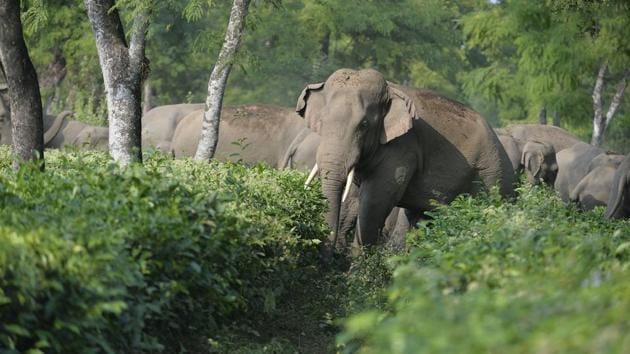Environment ministry project will look into birth control for elephants, monkeys
The environment ministry has allocated ₹10 crore to establish labs to help meet the objective of wildlife population management. The Wildlife Institute of India will be leading the research effort on birth control.
The environment ministry has approved a five-year project to research ways to limit birth control in four species, including the Asian elephant, a protected species under the Wildlife Protection Act and also the country’s national heritage animal.

The ministry has allocated ₹10 crore to establish labs and fund research to help meet the objective of wildlife population management as laid down in the latest Wildlife Action Plan (2017-2022.)
“One of the strategies is through reproductive control,” said a senior official at the Wildlife Institute of India (WII) .
“We are exploring all the options. The WII will be leading the research effort on birth control. Fortunately, scientists elsewhere have worked out what drugs to use but administration is the key problem,” he added.
Running a large-scale birth control programme that would limit births in wild animals is a tough task. However, culling of animals, which refers to the killing of healthy animals, is not viewed as an acceptable option because of the religious sentiments associated with species such as the monkey and the elephant.
Under the Wildlife Protection Act 1972 (WPA), when the population of some species becomes unmanageable, states request the Centre to declare them vermin, removing protections afforded by the WPA.
The Centre has received many requests from the states to declare nilgai, wild pigs and Rhesus monkeys as vermin so they can be hunted. However, such notifications are only valid for limited periods and for specified districts and are not a long term strategy.
“This will be the first time that such measures are being considered in India on a large scale,” SK Gupta of National Institute of Immunology,who will be a consultant on the project, said. “It has been tried in countries like South Africa for elephants,” he added.
The case of the elephant is different from the other three species, activists argue. India hosts about 60% of the Asian elephant population, which is classified as endangered in the IUCN Red list, a list of vulnerable species. Activists such as Tito Joseph, program manager at Wildlife Protection Society of India , would prefer that the government consider other measures to tackle the problem.





